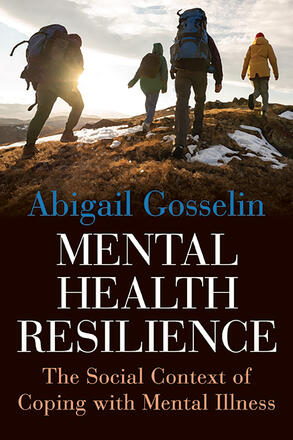
Mental Health Resilience
The Social Context of Coping with Mental Illness
Alternative formats available from:
Examines the forms of support, resources, and opportunities a person with mental illness requires to have the resilience needed for mental health recovery.
Description
While resilience is traditionally understood as an inner trait that individuals possess inside themselves, Mental Health Resilience argues that resilience should be seen as the product of social factors, where other individuals and institutions provide the resources, opportunities, and support that enable resilience. Resilience is also partly a matter of justice, as people can only be resilient in addressing their vulnerabilities when they are given adequate resources and opportunities, and in just ways. Seen in this light, Abigail Gosselin examines what a person who has mental illness needs to have the resilience required for mental health recovery and for coping with life challenges in general. With its focus on the social and political conditions of resilience, Mental Health Resilience will appeal to fields such as social philosophy, feminist political philosophy, philosophy of psychiatry, medical humanities, bioethics, and disability studies.
Abigail Gosselin is Professor of Philosophy at Regis University. She is the author of Mental Patient: Psychiatric Ethics from a Patient's Perspective and Humanizing Mental Illness: Enhancing Agency through Social Interaction, among other books.
Reviews
"Although Mental Health Resilience is written philosophically, with tight analyses of ideas, it is a book that can and should appeal to a wide general, educated readership. The key contribution is the highly sophisticated way Gosselin shows that individual resilience is impacted by social frameworks that can enable or hinder the capacities for individual resilience to be realized. By applying this account of resilience to the case of mental illness, she has made an important contribution." — Steve Matthews, Australian Catholic University